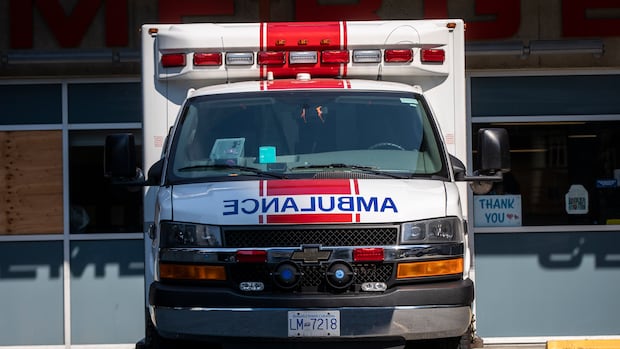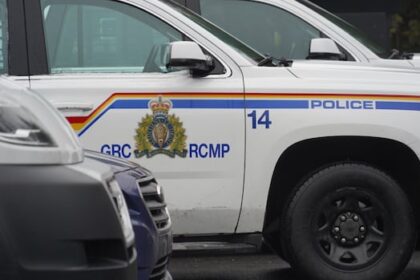British ColumbiaWhile the union representing 4,500 paramedics in B.C. says its members are always there to help, they sometimes face the challenge of having to drive three hours to get a patient to a community that offers the type of care they require.Ambulance paramedics forced to drive long distances, tying them up for long periods, union saysCourtney Dickson · CBC News · Posted: Nov 19, 2025 10:55 PM EST | Last Updated: 3 hours agoListen to this articleEstimated 3 minutesThe audio version of this article is generated by text-to-speech, a technology based on artificial intelligence.The union that represents thousands of paramedics and dispatchers in B.C. says ongoing emergency department closures across the province are putting undue pressure on paramedics. (Ben Nelms/CBC)Emergency rooms across B.C. have been repeatedly closed due to ongoing staffing challenges in recent years, and paramedics say it’s putting more and more pressure on them — especially when the closures happen in more rural and remote areas. Ambulance Paramedics of B.C., a union that represents more than 4,500 paramedics and dispatchers, says there have been more than 250 temporary hospital and emergency room closures so far in 2025. Communities like Lillooet, Mission, Delta, Williams Lake and Chetwynd — among many others — have also faced temporary ER closures this year due to staffing shortages. “The province has known about these staffing and capacity issues for years, yet here we are again. Another night, another closure,” Delta city councilor Dylan Kruger told CBC News last month.And just because emergency rooms are closed doesn’t mean people don’t need medical care.Union president Jason Jackson said paramedics are being asked to fill the gaps left by these closures. “We’re sending out paramedics across the province to keep communities staffed and covered, but with every closure, it’s harder for them to keep the system moving,” Jackson said in a news release. Ian Tait, union communications director, said that when an ER closes, the paramedics in the community “effectively become the healthcare system in the town.”And while Tait said paramedics are always there to help in someone’s time of need, the main issue is transporting patients to the closest community that can provide the type of care they require — which in some cases, can be a three-hour drive. “We can manage that,” Tait told CBC’s Radio West. “But then it also takes two to three hours to get back to the community that you normally serve. So taking somebody out effectively can turn into a five or even a six hour delay where there’s no ambulance in the community anymore.”WATCH | Tait talks about impact of ER closures:Ambulance Paramedics of B.C. raises alarm about ER closures before holiday seasonAs the busy holiday season approaches, the paramedics’ union in B.C. says there have been over 100 emergency room closures this year. Union spokesperson Ian Tait says the trend of ER closures, including in urban areas, leads to paramedics being forced to transport patients long distances and worsens health-care outcomes.Tait said the union is particularly worried as the holiday season approaches and winter weather sets in. “Highways become treacherous, impassable, and some of these things are going to negatively affect the logistics of us moving patients around when hospital closures occur,” Tait said. As winter arrives, paramedics in B.C. are concerned about emergency room closures and having to transport patients long distances on slippery roads. (Submitted by B.C. Emergency Health Services)He said paramedics want to take time off to spend with loved ones over the holidays just like anyone else, but under these circumstances, they worry about what might happen if they do. The province has been working to recruit more doctors and nurses, particularly from the U.S., so that future closures can be avoided. In September, Health Minister Josie Osborne said more than 140 U.S. health-care workers had accepted positions in B.C. since the recruitment campaign started in March. In the meantime, Tait said anyone who lives in a community that’s seen regular emergency department closures should figure out a plan to stay informed and get help if its needed. “What we don’t want to see is people suffering a medical emergency and deciding to go up to the hospital and then finding a closed sign,” Tait said. “When in doubt, call 911.”ABOUT THE AUTHORCourtney Dickson is an award-winning journalist with CBC News based in Vancouver, B.C.With files from Radio West
Rural emergency room closures put pressure on paramedics: union











